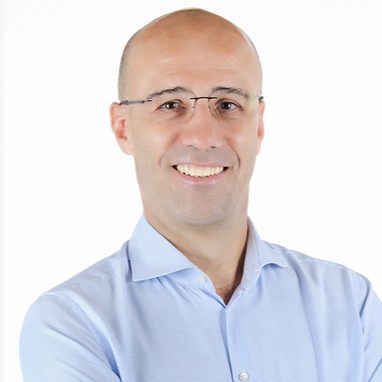Company Profiles
Independence Remains Big EAM Force; Sector Faces Compliance Challenges – HP Wealth Management

This news service talks to HP Wealth Management, an external asset manager founded in 2009 against the background of a financial crash and desire by HNW clients to tear up traditional ways of managing their money.
One quality that often drives founders to start an external asset manager (EAM) is a thirst for independence. And clients are particularly open to new models when there’s a financial crash or traumatic event.
When Urs Brutsch (main picture) and Michael Foo founded HP Wealth Management in Singapore, in 2009, they operated in the aftermath of the worst financial crisis since the Wall Street Crash. Banks were bailed out, and HNW individuals and business owners went back to the drawing board to consider how they wanted their money to be handled. They were fed up with a commission-driven culture, potential conflicts of interest, and a lack of closeness to an advisor.
Brutsch is now managing partner of a firm that has 30 people and, since 2013, has had a family offices services firm. HP Wealth Management (which does not disclose its exact AuM) is today located in Telok Ayer Street in the Asian city-state. Besides Brutsch and Foo (chief investment officer and partner), there is Stephane Schmid, partner, and a number of relationship members and other staff.
In Brutsch’s case, he came into the EAM business after a long spell in banking. Arriving in Singapore in 1986 as a Credit Suisse trainee, he has stayed in Singapore ever since. Brutsch moved to ABN AMRO in 1999 to run its Asian private banking arm, and returned to Credit Suisse’s group in 2004. And then the Global Financial Crisis happened. Ironically, it turned out to be the change Brutsch needed.
“It turned out it was probably the best time to set it up because clients didn’t trust their banks anymore,” Brutsch said.
Busy sector
As explained here in
this overview of EAMs, HP Wealth Management is
among several EAMs, family offices and other non-bank wealth
players that have proliferated in Singapore and the wider Asia
region. Over the past decade or so, several major banks have
operated as custodians to EAMs; new players are also entering
this field. And one reason for change and competition is
compliance.
Over time, Brutsch thinks that EAMs will use fewer custodians in total, with newer financial organisations breaking into a space that has been dominated by private banks. In HP Wealth Management’s case, it works with Bank of Singapore, UBS, Julius Baer and LGT.
In future, he expects EAMs to have fewer custodial bank relationships and make less use of private banks. “That is something that the industry will move towards in the next few years.” He said private banks’ “value-add” is decreasing.
Costs
An issue for the sector is rising regulatory complexity and cost.
“The banks in Singapore have become more difficult,” Brutsch
said. Rising costs means that it takes EAMs and their end clients
longer to be onboarded, making the process take up to six months.
To some extent, banks operating in Singapore are caught between a rock and a hard place: They want to provide speedy onboarding if possible, but know that they will be punished if bad actors are let through the door. A major money laundering court case in Singapore, for example, has encouraged the Monetary Authority of Singapore to tighten standards as much as possible. (MAS issued a report on the situation in June last year.)
Client frustration about onboarding times is a real problem for the sector, Brutsch said. “The hurdles we must jump over have got higher.”
“The banks are overstretched…the reason is that they have junior people on these [onboarding] files, and it makes the decision-taking process hard to do,” he continued.
In February, a report from Fenergo, a provider of client lifecycle management, know your customer and transaction monitoring solutions, found that Singapore's banking sector faces an "unprecedented" challenge as the number of clients abandoning banks due to slow and inefficient practices has surged to record levels. Nearly 90 per cent have lost clients over the past year due to delays and inefficiencies in onboarding, rising by more than a third (35 per cent) from the level in 2023.
Market focus
So what is weighing on clients’ minds?
A major question that comes from clients is about the markets (this interview was conducted before Trump jolted global markets with his tariffs), Brutsch said.
“You have stretched valuations in terms of equities; geopolitics is more explosive than [at] any time in many years, and markets haven’t fully priced it in. That is my biggest concern this year,” he said.
Recruitment challenges
Asked about the recruitment environment, Brutsch replied: “I
would like to get a few more RMs but that is increasingly
difficult.”
One problem is that Singapore’s RM market is full of people who are “mostly transactional,” he said. “Many of these firms continue to do what they were doing when they were in a bank.”
EAMs that go beyond a transactional model should gain ground.
“It is not sustainable for you to churn a client’s account and there is no added value. Clients are becoming increasingly sophisticated and see through that,” Brutsch said.
“Our [compensation] model is almost without retrocessions. Most RMs want to sell structured products and so on. That’s not our model,” he said.
The EAM sector, in general, looks vibrant, Brutsch said. Among organisations such as the Association of Independent Wealth Managers (Singapore), new firms join regularly.
Nominations are open for the Fourth WealthBriefingAsia EAM Awards, 2025, with the public announcement in Singapore, on 16 October.
